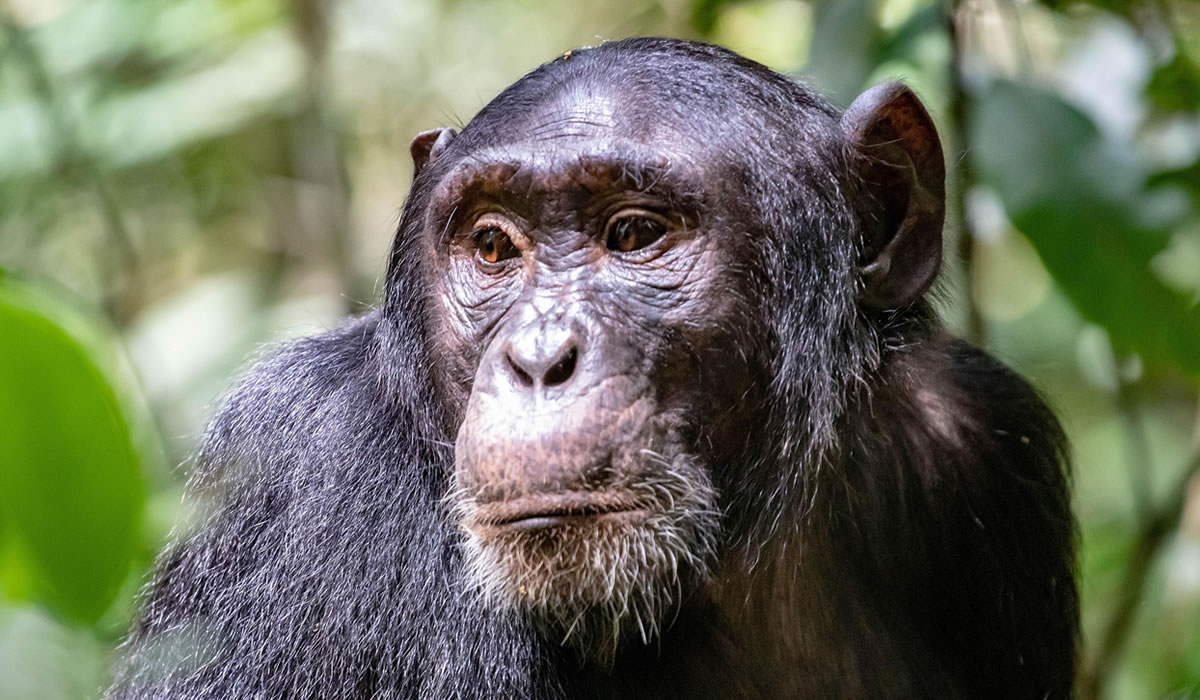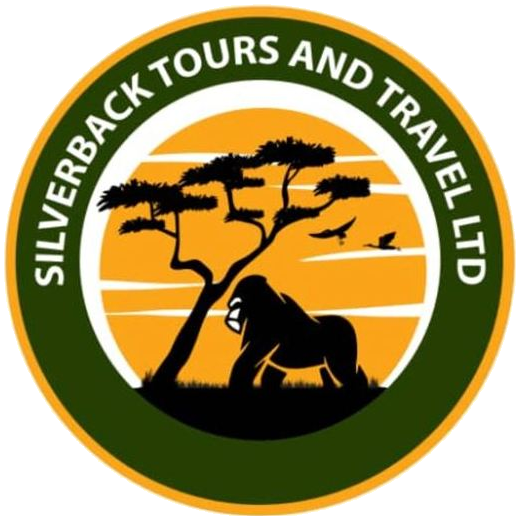Nyungwe Forest National Park, nestled in the southwestern corner of Rwanda, is one of Africa’s oldest and most biologically rich rainforests. Spanning more than 1,000 square kilometers, this montane forest is not only a sanctuary for a staggering diversity of flora and fauna, but also a prime destination for primate enthusiasts. Among its most fascinating attractions is chimpanzee tracking an immersive wildlife experience that allows visitors to observe our closest living relatives in their natural habitat. This exhilarating activity has become a cornerstone of Rwanda’s eco-tourism, attracting thousands of travelers each year to the misty forests of Nyungwe.

Introduction to Nyungwe Forest National Park
Nyungwe Forest is a biodiversity hotspot and part of the Albertine Rift, a region known for its endemic and endangered species. The park was established in 2004 and has since gained recognition as one of the best-preserved montane rainforests in Central and East Africa. The forest features steep ridges, deep valleys, waterfalls, and a dense canopy of trees a setting that is both breathtaking and ecologically significant.
Home to more than 1,000 plant species, 300 bird species (including 29 Albertine Rift endemics), and 75 mammal species, Nyungwe is a paradise for nature lovers. Among its standout inhabitants are 13 primate species, the most notable being the eastern chimpanzee (Pan troglodytes schweinfurthii), which forms the basis for the popular chimpanzee tracking experiences in the park.
Chimpanzees in Nyungwe: Population and Behavior
Nyungwe Forest is home to two habituated groups of eastern chimpanzees: one in Cyamudongo Forest, a small isolated patch of forest southwest of the main park, and another in the main Nyungwe sector. The total chimpanzee population in and around the park is estimated at around 500 individuals, though not all are habituated or accessible to tourists.
Chimpanzees are highly intelligent, social animals that live in large communities of up to 100 individuals, although they often split into smaller groups during the day for feeding. They are omnivorous, with a diet consisting of fruit, leaves, seeds, insects, and occasionally small animals. What makes them especially fascinating is their complex social structure, tool use, and expressive communication behaviors traits that underscore their close genetic relationship to humans.
Tracking chimpanzees offers a rare chance to witness these behaviors up close, from grooming and playing to feeding and vocalizing. Because chimpanzees are more mobile and elusive than mountain gorillas, tracking them is generally more challenging but equally rewarding.
The Chimpanzee Tracking Experience
Preparation and Starting Points
Chimpanzee tracking in Nyungwe begins early in the morning, typically around 5:00 to 6:00 a.m. Trekkers gather at the park’s headquarters or designated ranger stations, where they receive a briefing from park guides. During the briefing, participants are introduced to chimpanzee behavior, safety precautions, and tracking etiquette. It’s also when tracking groups are assigned and logistics are finalized.
Tracking can take place in either the main Nyungwe Forest area or in Cyamudongo Forest. While both locations offer excellent sightings, Cyamudongo tends to provide better chances due to the smaller forest size and higher chimpanzee density. However, the main forest offers a more immersive experience, with the added bonus of potentially spotting other primates and birds along the way.
The Trek
After the briefing, trackers set off into the forest led by experienced guides and often accompanied by rangers and trackers who have gone ahead to locate the chimps. The trek can last anywhere from 30 minutes to several hours depending on the location of the chimpanzees, who can travel several kilometers in a day. The terrain is often steep, slippery, and densely forested, so a moderate level of physical fitness is recommended.
As the group gets closer to the chimpanzees, trekkers are asked to move quietly and follow strict behavioral guidelines to minimize disturbance to the animals. Once the group reaches the chimps, visitors are allowed to spend one hour in their presence. This time limit is enforced to reduce stress on the animals and minimize the risk of disease transmission.
The Encounter
Coming face to face with wild chimpanzees is an unforgettable experience. The air fills with excited calls and rustling leaves as the chimpanzees swing from trees or forage on the forest floor. Some may display curiosity and approach cautiously, while others carry on with their activities unfazed by human observers.
Photographers will find this a challenging yet rewarding opportunity, as capturing sharp images in the dim forest light requires quick reflexes and steady hands. Regardless of photographic success, the emotional impact of observing such intelligent creatures in their natural habitat leaves a lasting impression on all who participate.
Additional Wildlife and Birdlife
While chimpanzees are the main draw, the trek often reveals other treasures of the Nyungwe ecosystem. Visitors may spot other primate species such as:
- L’Hoest’s monkey
- Owl-faced monkey
- Colobus monkeys (especially the large groups in the Gisakura area)
- Blue monkeys
- Grey-cheeked mangabeys
The park is also a birding paradise, with endemic and rare species like the Rwenzori Turaco, Great Blue Turaco, Grauer’s Swamp Warbler, and Red-collared Babbler. Butterflies, orchids, tree ferns, and unique fungi add to the visual feast of the forest.
Practical Information for Chimpanzee Tracking
Permits and Booking
To track chimpanzees in Nyungwe, visitors must obtain a tracking permit from the Rwanda Development Board (RDB) or through licensed tour operators. As of recent updates, the cost of a permit is approximately $90 USD per person for foreign non-residents, with discounts for East African citizens and residents.
It is advisable to book permits in advance, especially during peak travel seasons (June–September and December–February), as daily group sizes are limited to reduce ecological impact and maintain quality experiences.
What to Bring
- Sturdy hiking boots with good traction
- Long-sleeved shirt and trousers to protect against scratches and insects
- Rain gear — even during the dry season, Nyungwe can receive rainfall
- Insect repellent (preferably DEET-based)
- Drinking water and snacks
- Camera with zoom lens and spare batteries
- Walking stick (often provided at the start of the trek)
Health and Safety
Due to the close genetic relationship between humans and chimpanzees, there is a risk of cross-species disease transmission. Visitors showing signs of illness (especially respiratory infections) may be denied participation. Wearing masks is often recommended or required during the viewing period.
Guides and rangers are trained in first aid and emergency procedures. However, it’s crucial to heed their instructions at all times for personal safety and animal welfare.
Conservation and Community Impact
Chimpanzee tracking is more than just a tourist activity, it plays a critical role in primate conservation and community development. A portion of the permit fees goes toward conservation programs and local community projects, helping to build schools, health centers, and infrastructure in nearby villages. This revenue-sharing model incentivizes local communities to support wildlife protection rather than engage in activities like poaching or illegal logging.
Nyungwe Forest is protected as a national park and has been designated a UNESCO World Heritage Site, highlighting its global ecological importance. Conservation efforts are led by the Rwanda Development Board in collaboration with international NGOs and research institutions.
Despite these efforts, chimpanzees and other primates face ongoing threats from habitat fragmentation, disease, and climate change. Sustainable tourism, including regulated chimpanzee tracking, raises awareness and funding to help safeguard the forest and its inhabitants for future generations.
Accommodation Options
Nyungwe offers a range of accommodation options to suit different budgets and preferences. These include:
- One&Only Nyungwe House – A luxury eco-lodge offering high-end amenities and guided nature experiences.
- Nyungwe Top View Hill Hotel – A mid-range option with panoramic views and easy access to park entrances.
- Gisakura Guest House – A budget-friendly guesthouse popular with backpackers and independent travelers.
- Community-run lodges – Available near park boundaries, these provide a more immersive local experience and support local income generation.
Most accommodations can assist with permit bookings, transport arrangements, and guide services.
Combining Chimp Tracking with Other Activities
Chimpanzee tracking can be combined with several other activities in and around Nyungwe Forest:
- Canopy Walkway – A thrilling suspension bridge offering aerial views of the forest.
- Colobus Monkey Trekking – Explore the forest’s massive troops of black-and-white colobus monkeys.
- Bird Watching Tours – Targeted birding walks with specialist guides.
- Waterfall Hikes – Scenic trails lead to secluded waterfalls such as Isumo Falls.
- Tea Plantation Tours – Near Gisakura, these provide insight into local agriculture and Rwandan culture.
Combining these experiences with chimpanzee tracking creates a comprehensive and memorable itinerary that highlights the best of Nyungwe’s natural and cultural offerings.
Chimpanzee tracking in Nyungwe Forest National Park is one of Rwanda’s most exhilarating and enriching wildlife experiences. It offers a rare chance to observe one of our closest evolutionary relatives in their natural environment, all within the stunning backdrop of an ancient and biodiverse rainforest. From the adrenaline of the trek to the awe of watching a chimpanzee family interact in the wild, the experience fosters a deep appreciation for nature and conservation.
With its blend of ecological richness, responsible tourism practices, and community empowerment, Nyungwe represents the future of sustainable travel in Africa. Whether you’re an adventurer, a wildlife photographer, or a nature lover, chimpanzee tracking in Nyungwe promises an unforgettable journey into the heart of the wild.

